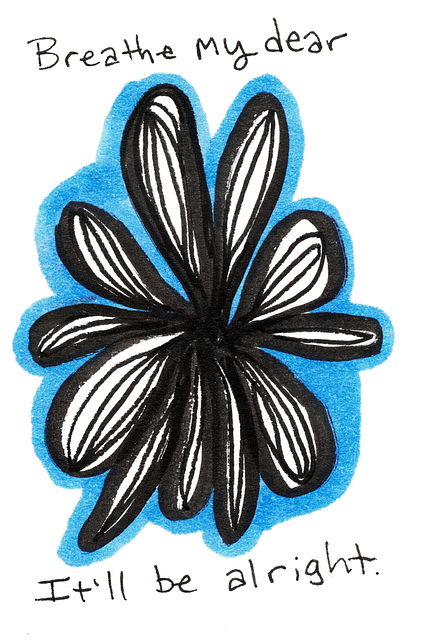Public awareness campaigns targeting conduct disorders in Arvada leverage diverse media to educate residents about mental health. These initiatives promote early recognition, provide practical coping strategies like mindfulness, and reduce stigma through relatable content. Tailored resources for parents, educators, and peers enhance understanding while evidence-based practices build resilience. Comprehensive risk assessment tools and training enable professionals to identify at-risk individuals early, guiding personalized interventions. Campaign evaluations using surveys, focus groups, and data integration help refine future initiatives for improved community well-being, complementing Arvada Conduct Disorder Therapy services.
Public awareness campaigns play a pivotal role in shaping societal perceptions and behaviors, especially in mental health initiatives. This article explores the evolution and impact of such campaigns in Arvada, focusing on their potential to mitigate conduct disorder among youth. We delve into proven strategies for crafting compelling messages that resonate with diverse audiences, while also examining evaluation methods to assess campaign success in community therapy settings. By integrating these insights, Arvada Conduct Disorder Therapy can enhance its outreach efforts and drive positive change.
- Understanding Public Awareness Campaigns and Their Impact on Mental Health Initiatives in Arvada
- Strategies for Creating Effective Campaigns to Combat Conduct Disorder
- Measuring Success: Evaluation Methods for Public Awareness Campaigns in Community Therapy Settings
Understanding Public Awareness Campaigns and Their Impact on Mental Health Initiatives in Arvada

Public awareness campaigns play a pivotal role in shaping societal perceptions and behaviors, especially when addressing mental health concerns within communities like Arvada. These initiatives aim to educate the public about various issues, including conduct disorders and their impact on individuals’ lives. By utilizing diverse communication channels, such as local media, community events, and social platforms, these campaigns can effectively reach a wide audience.
In Arvada, for instance, awareness campaigns have been instrumental in promoting mental wellness. They often incorporate practical guidance, like suggesting journaling exercises or mindfulness meditation techniques, to help residents manage stress and enhance their overall well-being. This proactive approach not only raises awareness but also equips individuals with tools to tackle mental health challenges, potentially reducing the burden on local conduct disorder therapy services.
Strategies for Creating Effective Campaigns to Combat Conduct Disorder

Developing effective public awareness campaigns to combat conduct disorder involves a multifaceted approach that combines education, support, and intervention strategies. One key strategy is to foster open communication about mental health issues, focusing on early recognition and prevention. Campaigns should employ compelling narratives and relatable content to encourage individuals and communities to discuss conduct disorder openly without stigma. Educational resources tailored for different audiences, such as parents, teachers, and peers, can significantly enhance understanding and facilitate supportive environments.
Additionally, incorporating evidence-based practices in these campaigns is crucial. Promoting emotional well-being through activities that build resilience, self-regulation, and positive coping mechanisms equips individuals with tools to manage conduct disorder symptoms. Risk assessment plays a vital role as well; mental health professionals should be trained to identify warning signs early on, utilizing robust assessment tools to inform tailored interventions. By integrating these communication strategies, emotional well-being promotion techniques, and comprehensive risk assessments, public awareness campaigns in Arvada Conduct Disorder Therapy can effectively reach at-risk individuals and foster healthier communities.
Measuring Success: Evaluation Methods for Public Awareness Campaigns in Community Therapy Settings

Evaluating the success of public awareness campaigns is paramount to understanding their impact and effectiveness in community therapy settings, such as Arvada Conduct Disorder Therapy. Traditional methods include pre- and post-campaign surveys to gauge changes in knowledge, attitudes, and behaviors among the target audience. These surveys can measure the reach and penetration of the campaign by assessing how many individuals were exposed to the messaging and the extent to which it influenced their perceptions.
Furthermore, qualitative feedback from focus groups or interviews can provide deeper insights into the campaign’s impact on specific populations within the community. By combining quantitative data with rich qualitative narratives, therapists and campaign organizers can gain a comprehensive understanding of what worked well, identify areas for improvement, and ensure that future initiatives foster positive thinking, anxiety relief, and mindfulness meditation practices, ultimately enhancing the overall well-being of the served communities.
Public awareness campaigns play a pivotal role in shaping mental health outcomes in communities like Arvada, particularly when addressing issues such as conduct disorder. By employing strategic communication methods and utilizing effective evaluation techniques, these campaigns can significantly impact behavioral changes and improve access to therapy for those in need, ultimately enhancing the well-being of Arvada Conduct Disorder Therapy clients.














